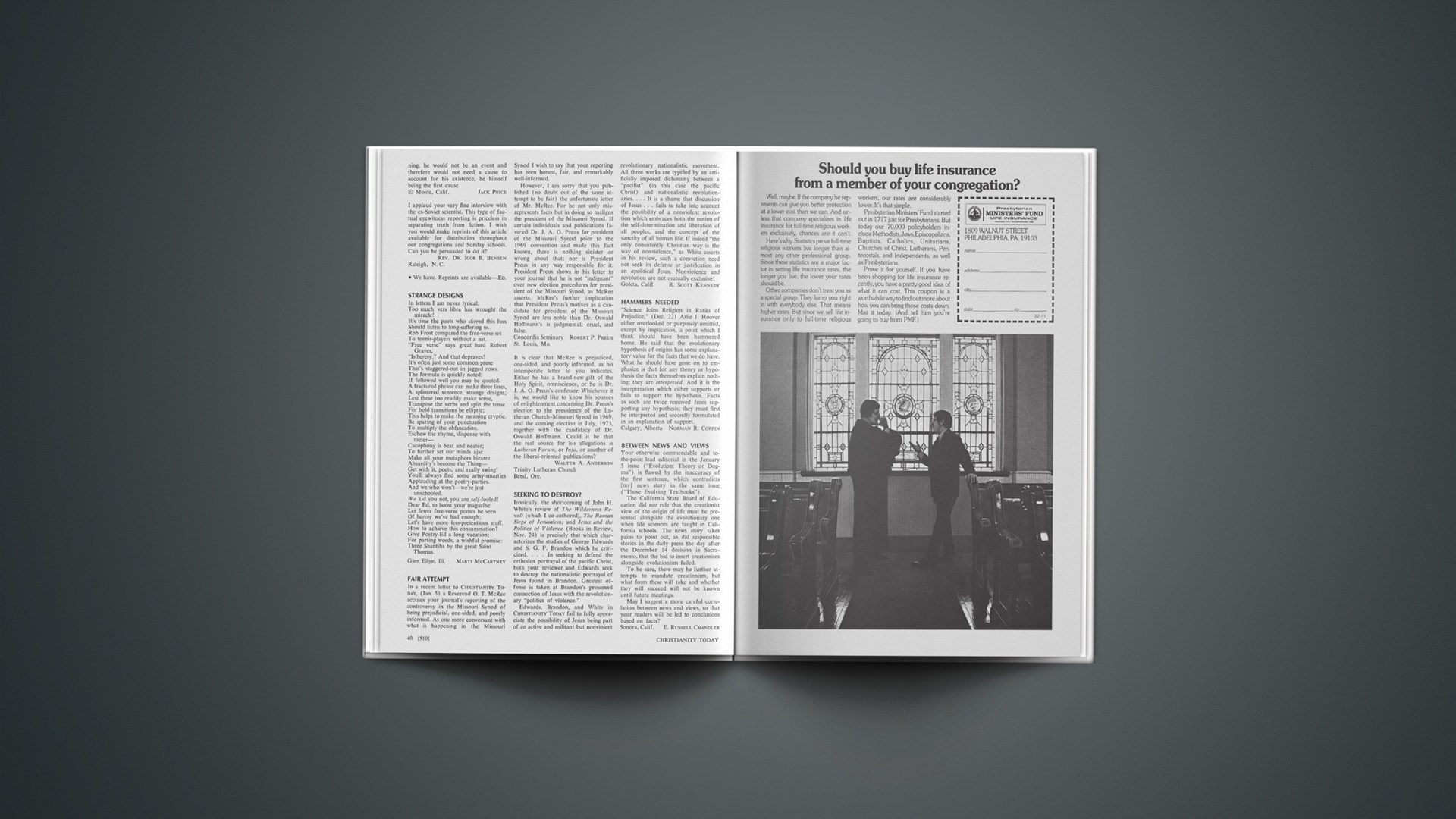The agreement that brought an end to United States involvement in the war in Viet Nam leaves many unanswered and perhaps unanswerable questions with which historians will wrestle for years to come.
The most compelling question is whether the United States should ever have gotten embroiled in the war at all either for moral or for purely pragmatic considerations. Fervent supporters of either the morality or the immorality of the U. S. role are the least able to answer this difficult question. Objective, dispassionate appraisal is needed.
This leads to the second question: What about the role of President Nixon in bringing the war to an end? When President Johnson defeated Barry Goldwater for the presidency he proceeded to do in Viet Nam what he promised he would not do: he sought the military solution advocated by Goldwater, whose views the voters supposedly repudiated. Nixon did not start the war, nor did he extend it; he inherited it and promised to end it. For four years Nixon-haters have accused him of not wanting to end the war. Now he has fulfilled his pledge. Whether he could have done it sooner, and if so under what terms, is another unanswered question. Now other tests lie before him, having to do with Rhodesia, South Africa, Mozambique, Latin America, Greece, the Near East, and the nations behind the iron curtain.
Nixon chose to follow his own course of action, which had the approval of the electorate last fall when McGovern was decisively defeated. It is not unreasonable to suppose that Hanoi chose to wait out the election returns, for McGovern would have given them all they wanted. In this sense the election year guaranteed the continuance of the war unless Nixon yielded to McGovern’s viewpoint. He did not. And the war dragged on.
Nixon’s decision to renew the bombing brought waves of protest. Hanoi did return to the negotiating table, though no one can say for sure what part the bombing played. In the settlement, nobody was the victor; all four parties made concessions. The lasting value of the agreement remains to be seen. Both Nixon and Kissinger warily declined to claim any finality or certitude for the agreement. They know as we all know that the worth of this piece of paper depends entirely upon the integrity of the signatories.
To suppose that the Communists of North Viet Nam will faithfully fulfill the terms of the ceasefire any longer than it suits their purposes to do so would be very naïve. Indeed, there was military activity in South Viet Nam after the ceasefire became effective. The ceasefire, in our judgment, will be temporary; the struggle for control of all of Viet Nam is by no means over. But the United States will be out of it, its solders will have come home, and the POWs will have returned. The United States will have an agreement it can live with even as it searches its soul to settle the issues of guilt and the role of a great power in a divided world. But will America have learned these important lessons: that great nations have power limitations; that no nation can police the world, or make it safe against Communism; and that no country should resort to war unless its necessity and justification can be made plain and understandable to its people?
Some of us are convinced that the prayers of God’s people had something to do with the cessation of hostilities—even if the answer took longer than we hoped for. We thank God that this frustrating and unhappy episode has come to an end. Now we need to pray for the healing of the wounds among the people of the United States as it looks toward the bicentenary of its birth as a nation.










